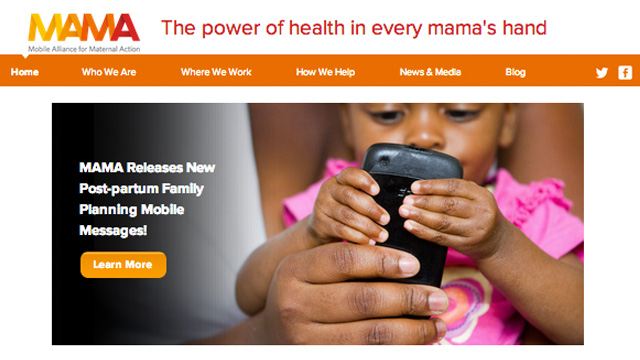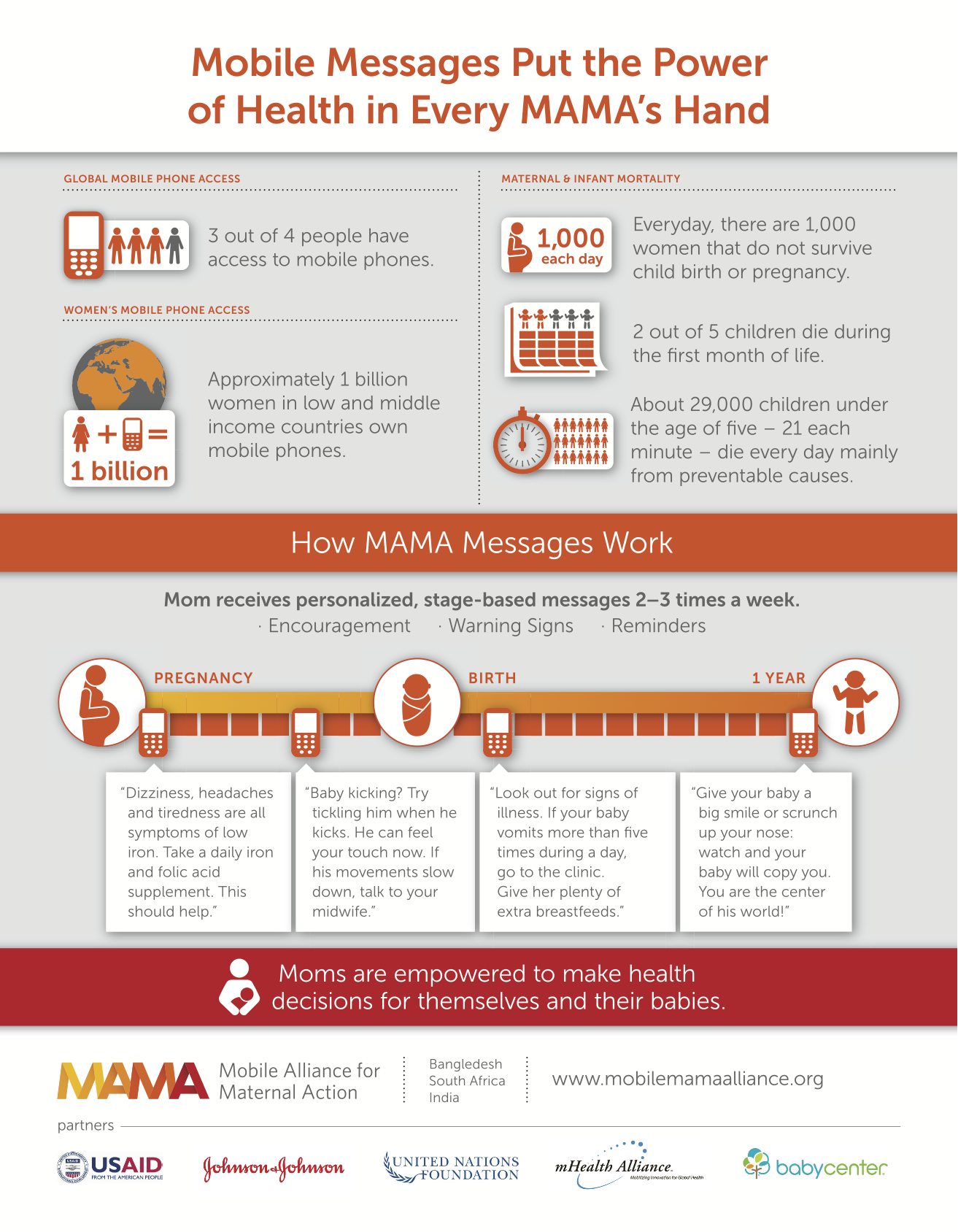Posted on 06/07/2013 7:39 PM ?|?Updated 06/08/2013 11:07 AM
 MOBILE MIDWIFE. A tool to bridge the gap between maternal health care and expectant mothers. Screenshot of MAMA website
MOBILE MIDWIFE. A tool to bridge the gap between maternal health care and expectant mothers. Screenshot of MAMA website
KUALA LUMPUR, Malaysia ? ?Dizziness, headaches and tiredness are all symptoms of low iron. Take a daily iron and folic acid supplement. This should help.? Expectant mothers in the African state of Ghana can simply access their mobile phones and receive text messages like this instead of going to a clinic to get prenatal advice.
At the Women Deliver Conference held in Kuala Lumpur in May 2013, Mobile Alliance for Maternal Action (MAMA) discussed results of their pilot programs using mobile phones to reach expectant mothers in countries where there is high maternal mortality and access to healthcare facilities is difficult. The pilot programs were implemented in Ghana, Bangladesh and South Africa,
?3 out of 4 people have access to mobile phones and approximately 1 billion women in low and middle income countries have mobile phones,? said Kristen Gagnaire, MAMA global director.
Its high level of ownership, coupled with its one-on-one communication and privacy make mobile an ideal way of bridging the gap between maternal health care and expectant mothers, especially those who need to seek contraceptive advice without anyone knowing it.
In Ghana, MAMA uses MOTECH (Mobile Technology for Community Health), an open source that allows them for a ?Mobile Midwife Service.? Women receive weekly automated voice or SMS messages about prenatal care, vaccinations and maintaining proper nutrition.
Upon registering to the program, the expectant mother may get a message like this: "Hello, mother! These messages will help you understand your body, make the choice to pace your family and chose a message suits you.?
Moms also provides an option to retrieve voice messages. ?We have seen that this is a popular option in some countries because the message can be delivered in their local language and because of literacy issues, it is better understood,? Gagnaire said.
Nurses use the registration information to build a database of expectant mothers. Nurses receive alerts on those who are scheduled for check up or have defaulted on care.
?With this information, we can do targeted outreach to those who have defaulted,? said Gagnaire.
 MOBILE MESSAGES. Through the service, women can receive weekly automated voice or SMS messages about prenatal care, vaccinations and maintaining proper nutrition. Screenshot of infographic from MAMA website
MOBILE MESSAGES. Through the service, women can receive weekly automated voice or SMS messages about prenatal care, vaccinations and maintaining proper nutrition. Screenshot of infographic from MAMA website
Multi-channel approach
In South Africa, MAMA uses mix of platforms to reach different types of mobile devices.
?We have used a multi-channel approach given that most of the population in South Africa own what we call ?dumb phones?, which is basically just good for texting and calling,? said Katherine de Tolly of Cell Life - MAMA South Africa.
One of the barriers to seeking healthcare assistance is poor service of the provider and their reluctance to deal with public health care system.
?Women report long queues and treated not well by healthcare officials. While we can?t shift the power balance (through mobile) but we can empower women to help them understand their rights,? said de Tolly.
In Bangladesh, because the owner of the mobile phone is most likely a ?key decision maker? like the husband, messages are designed to engage the husband or guardian.
About 81% receive prenatal advice through voice messages and 19% through SMS. Bangladesh has also customized their voice messages for urban and rural communities. Messages to urban communities are delivered in a straightforward announcement, while messages to rural communities are in a drama ? dialogue format.
Sustaining the mobile momentum
The results of these pilot programs are being assessed and other efforts to make the mobile service sustainable even after the pilot testing stage are being explored.
?We try to think beyond this being a pilot project. We?re exploring working with one of the telecom companies for a fee-based service for urban women [to possibly subsidize the cost of communicating to rural communities],? said Gagnaire.
In Bangladesh, where 20% of the target communities live below the poverty line, efforts are being explored to continue giving the service for free. Corporate advertising and partnerships are being explored. - Rappler.com
Source: http://www.rappler.com/move-ph/30868-mobile-health-service
Ncaa Basketball Tournament NCAA Bracket 2013 Robert Morris spring lululemon jon hamm southern university
No comments:
Post a Comment
Note: Only a member of this blog may post a comment.